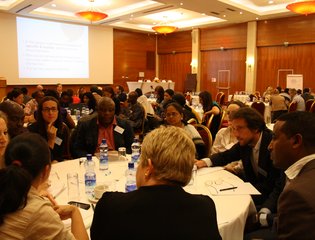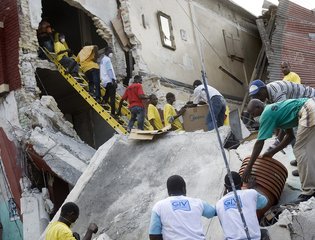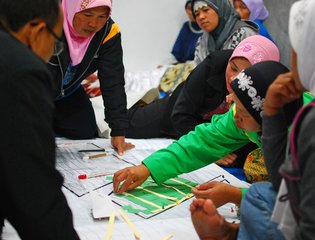Our strategic approach to a changing world
We recognise the complexities and rapid pace of change in the humanitarian world, as well as increased expectations for change and improvement identified by the World Humanitarian Summit.
In this respect, our strategy is based upon simple rules which allow us to adapt to new demands and changing circumstances.
ALNAP will evolve using this strategy as a basis for making decisions to ensure we remain relevant and useful.
2024- 2026 Workplan
The ALNAP Secretariat produces an annual workplan comprising a programme of activities that aim to advance four strategic focus areas. The workplan is implemented by the Secretariat, with progress overseen by the ALNAP Steering Committee.
Over 2024–2026 ALNAP will continue work to ensure that the international humanitarian system benefits from the sector’s collective experience, knowledge and learning, and is better able to provide principled assistance and protection to the most vulnerable people who are affected by crises.
Between now and 2026, ALNAP will continue to focus its efforts on issues that resonate across all constituencies of the humanitarian sector and are critical to its improved performance.
Our Strategic Focus Areas
1 - Improving the Quality and Accessibility of Evaluative Evidence
- Guidance on using the OECD DAC (Development Assistance Committee of the Organisation for Economic Co-operation and Development) evaluation criteria.
- COVID-19 synthesis evaluation.
- Synthesis evaluation of the humanitarian-development-peacebuilding (HDP) nexus.
- Locally led monitoring and evaluation - scoping study.
- Monitoring and evaluation community engagement.
2 - Monitoring the Performance of the Humanitarian System
- The State of the Humanitarian System (SOHS) Report.
3 - Addressing Key Evidential Gaps
- Accountability to affected population (AAP) - scoping study.
- Locally led humanitarian action - scoping study.
- Communicating humanitarian learning.
4 - Supporting System-Wide Learning
- Lessons papers on crises and emergency response.
- Increasing the accessibility of learning through the HELP Library, academic partnerships, support for operational decision-makers, and South-South learning platforms.


